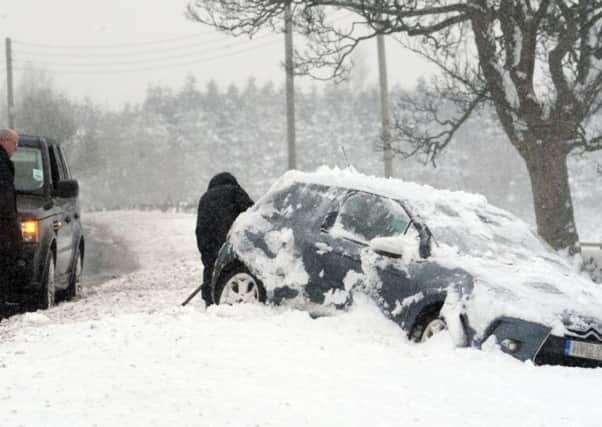Fastest 50: Plan ahead to beat the snow


Kevin Weston, partner and head of the property team at Ward Hadaway in Leeds, says that the disruption caused by accumulating snow across the region brought home to many businesses why taking precautions and planning for the worst-case scenario is an important part of business life.
As businesses count the cost of the clean-up operation following heavy snowfall, Kevin, who has more than 25 years’ experience advising on property issues in Yorkshire, says with the prospect of similar severe weather occurring, fast-growing companies would do well to factor in contingency plans when it comes to their property needs.
Advertisement
Hide AdAdvertisement
Hide AdKevin, inset, said: “In general, when a company is looking for premises, it is important to carry out a long-term risk assessment of the potential property, looking at its location in terms of proximity to rivers and other watercourses and the flood risk profile of the area.


“Of course, this isn’t always straightforward – one of the features of the severe weather to hit Yorkshire in 2015 was the fact that many properties suffered from flood damage as a result despite being some distance from major watercourses.
“It is also important to stress that urban locations can be just as badly affected as those in more rural areas – you only have to look back at what happened in cities like Leeds and York two years ago to see that.
“As a result, while it makes sense to carry out due diligence on a property’s susceptibility to flooding for example, that is not a guarantee premises will not be affected by the effects of prolonged heavy rain.
Advertisement
Hide AdAdvertisement
Hide Ad“This makes having a comprehensive and workable disaster recovery plan a must for all businesses, not least the kind of fast-growing, ambitious companies such as those found in the Ward Hadaway Yorkshire Fastest 50.”


Ideally, disaster recovery plans should cater for a wide range of scenarios and the prevalence of flooding in recent years means dealing with such a situation is a key part of any plan.
Kevin explained: “The plan which may differ depending upon whether a company is tenant or owner of the property should contain set procedures and practical steps and it is important that it is communicated to everyone within a company so they know what to do should the worst happen.
“It should have everything from how to ensure the safety of the staff in such situations to keeping comprehensive HR and contact records in the event of an emergency. It is important to be able to contact staff to let them know what is happ-ening and how it will affect them.
Advertisement
Hide AdAdvertisement
Hide AdProvision should also be made for preserving crucial stock and valuable equipment in the event of a flood.
“There is a lot to consider when faced with such scenarios, but proper planning is much more than just a box-ticking exercise. While even the best prepared businesses are sometimes helpless in the face of nature, they are the ones more likely to bounce back from such serious setbacks.”
Kevin said: “If you are a tenant, you may need to notify your landlord that the premises have been damaged to invoke the rent suspension provision in your tenancy (meaning you may not have to pay rent for the time that the premises cannot be used).
“You should also review the lease which you have to see if there are any other provisions which you need to comply with insofar as damage by flooding is concerned.”
For more information on the issues raised by this article, contact Kevin at [email protected] or on 0113 205 6671.